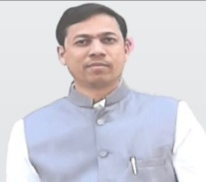

Prof. Jing Gao
Southwest University, China
Research Area: Ecological Economy
Brief: Gao Jing, Doctor of management, a young scholar in Bayu, has worked in Southwest University for 15 years. In 2017, she visited the Business School of the University of Birmingham in the UK, mainly research the ecological economics of rural regional economic development. She presided two national projects "Research on the mechanism and Countermeasures of returning home and entrepreneurship enabling Rural Revitalization",and she published than 50 papers,4 academic monographsm, such as《How Does the Land Transfer Affect the Income of Small Farmers: Logical Explanation of Reason and Thousand Data Check》《Research on Protection the Rights and Interests of Land-Transfer Peasant:Satisfaction Degree and Protection Strategy》 published on the journal 《China Soft Science Magazine》.
Speech Title: Spatial effects of environmental regulation and ecological efficiency spillover in the Yangtze River Economic Belt: An intermediary test of industrial structure
Abstract: In order to investigate the relationship between environmental regulation, industrial structure adjustment and ecological efficiency from a spatial perspective, based on the panel data of 11 provinces and cities in the Yangtze River Economic Belt from 2002 to 2018. This paper established an undesired output SBM model and spatial correlation model to analyze spatial distribution and agglomeration of ecological efficiency. Based on the spatial perspective, a spatial measurement model is constructed to analyze the spatial effects of environmental regulation, industrial structure adjustment and interaction items on ecological efficiency. The results show that: From 2002 to 2018, the ecological efficiency of the Yangtze River Economic Belt showed a U-shaped change trend. The downstream ecological efficiency was higher than the global level, while the upstream and middle reaches were lower than the global level. There is a spatial agglomeration effect on ecological efficiency, showing a positive spatial correlation. Environmental regulation has a significant promotion effect on the local eco-efficiency. Advanced industrial structure has a significant promotion effect on the ecological efficiency of local and neighboring areas. Advanced industrial structure has a significant negative adjustment effect on the impact of environmental regulation on the ecological efficiency of local and neighboring areas.

A. Prof. Minyue Jin
Chongqing University, China
Research Area: Supply chain management, sustainable operations, marketing‐manufacturing interface
Brief: Dr. Minyue Jin received her Ph.D. from University of Science and Technology of China, and had been a visiting postdoc at University of California, San Diego. In 2018, she joined Chongqing University under the “One-hundred Talents Program”. Her research interests include sustainable operations and supply chain management, consumer behavior and marketing strategies. Jin has been published in numerous journals, including Manufacturing & Service Operations Management (UTD 24), European Journal of Operational Research, Omega, International Journal of Production Research, and International Journal of Production Economics.
Speech Title: Choice of E-waste Recycling Standard Under Recovery Channel Competition
Abstract: We consider two competing electronic waste (e-waste) recovery channels, each of which consists of a collector and a recycler. Collectors obtain donated e-waste and sell the collected items to recyclers or in the secondary market, while recyclers process e-waste and sell the recycled material in the commodity market. Each recycler chooses for certification of one of two standards: e-Stewards or Responsible Recycling (R2). E-Stewards requires comparably more responsible handling, thus a higher processing cost, but attracts more e-waste from environmentally conscious donors. We find that Policy makers who aim to encourage e-Stewards adoption should (1) lower entry barriers for new recyclers to induce competition and (2) offer incentive programs to alleviate e-Stewards cost disadvantage, though only when recyclers have weak scale economies. Policy makers and non-governmental organizations, however, should exercise caution in endorsing e-Stewards because R2 actually may generate a higher environmental benefit because of higher recycling volumes.

A. Prof. Vilas Gaikar
University of Mumbai, India
Research Area: Indian Economy, Marco Economics, Banking, Trade, Agriculture and Rural development, Co operatives
Brief: Dr. Vilas B. Gaikar has been associated with H(S)NC Board's, Smt. CHM. College, Ulhasnagar in the capacity of Vice-Principal & Associate Professor of Economics for Sixteen years. He has Successfully filed and received grant on the Indian as well as international patents on waste water management, Crop Monitoring and Surveillance etc. Dr. Gaikar is associated with teaching Economics with the ‘Tashkent state university of oriental studies’, Tashkent, Uzbekistan. He is recipient of UGC- Travel Grant, Ministry of Human Resource Development, Govt. of India for presenting research papers in international conferences abroad and accordingly presented papers at the University of Harvard, USA (2014) and University of London, UK (2019). Dr. Vilas B. Gaikar is the member of various international organizations such as The International Health Economics Association, International Economics Development and Research Center (IEDR), International Economic Development Council (IEDC), World Economic Association etc.
Speech Title: Economics of global poverty: Past, present and future
Abstract: Poverty is defined as a state or condition in which an individual or a group lacks the financial means and necessities for a basic level of living. It is also termed as a situation in which one's earnings from work are insufficient to meet fundamental or basic human requirements. According to the World Bank, about 9.2 percent of the world's population, or 689 million people, live in extreme poverty on less than $1.90 per day. The condition of developing nations as compared to the developed nations is very problematic. Poverty, according to the Thomas Malthus, is unavoidable. In his words, It has appeared that from the inevitable laws of our nature, some human beings must suffer from want. These are the unhappy persons who, in the great lottery of life, have drawn a blank.”The majority of the world's population was extremely destitute two centuries ago. It was widely assumed at the time that widespread poverty was unavoidable. However, this proved out to be incorrect. Poverty can be reduced and economic growth is attainable. The globe has come a long way in the fight against extreme poverty. However, after two centuries of development, extreme poverty still exists for one out of every 10 people on the planet. This is what the metric known as the "international poverty line" emphasises: it plays a significant (and successful) function in drawing the world's attention to the world's poorest people. Today's poorest population is available in countries that have experienced slow growth. One of the most pressing issues of our time is the stagnation of the world's poorest economies. Millions of people will continue to live in terrible poverty unless something changes.

A. Prof. Xi Chen
College of Economics and Management,Southwest University,China
Research Area: Low-carbon economy, Environmental Management, Low-carbon agriculture
Brief: Dr. Chen obtained her PhD degree from the University of Hong Kong. Her research focuses on low-carbon economy, environmental management, and low-carbon agriculture. She has published over 20 journal papers on high-impact SCI/SSCI journals, such as Resource, Conservation, and Recycling, Waste Management, Environmental Impact Assessment Review, and Sustainable Development.
Speech Title: Understanding the sustainable consumption of energy resources in global industrial sector: Evidences from 114 countries
Abstract: The rapid development of industry, which is an energy-intensive sector, may lead to an increased amount of energy consumption. This study conducted a decoupling analysis between industrial energy consumption (IEC) and industrial economic growth (IEG) to identify their relationship. It was found that among the 114 studied countries, there were 32 countries where strong decoupling occurred during the period of 2000 to 2017, while that of others were yet to come. Further, the improvement of industrial energy output (IEO) was the most signicant driver for IEC, and population also played its role in IEC increment; the reduction of industrial energy intensity (IEI) was the primary inhibitor for IEC, and the decrease of industrial employment rate slightly turned the IEC down over the period. For promoting the decoupling and less energy consumption in the industry, it is suggested to improve the energy ef ciency, decelerate the industrial devel- opment, or shift the more energy-intensive industrial sectors to less energy-intensive ones, such as services. The study provides a global perspective for IEC reduction with the evidences of 114 countries, and its findings and policy implications provide the status quo and way forward for the countries aiming at reducing their IEC.
We warmly invite you to participate in UPRE 2022 and discuss with keynote speakers.
